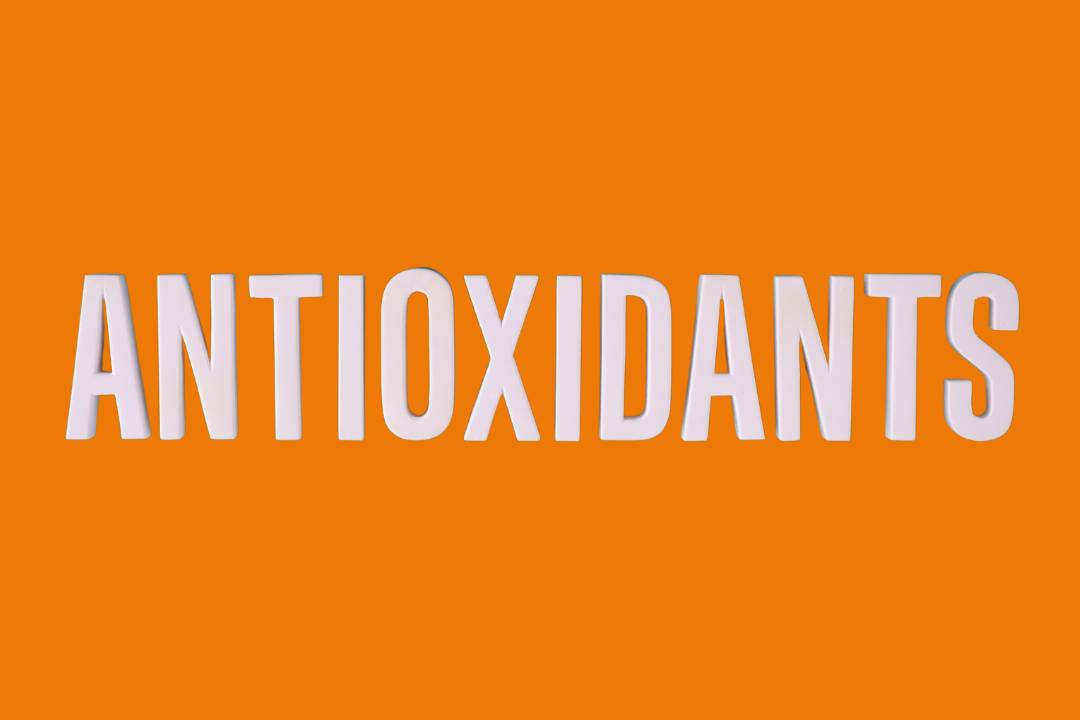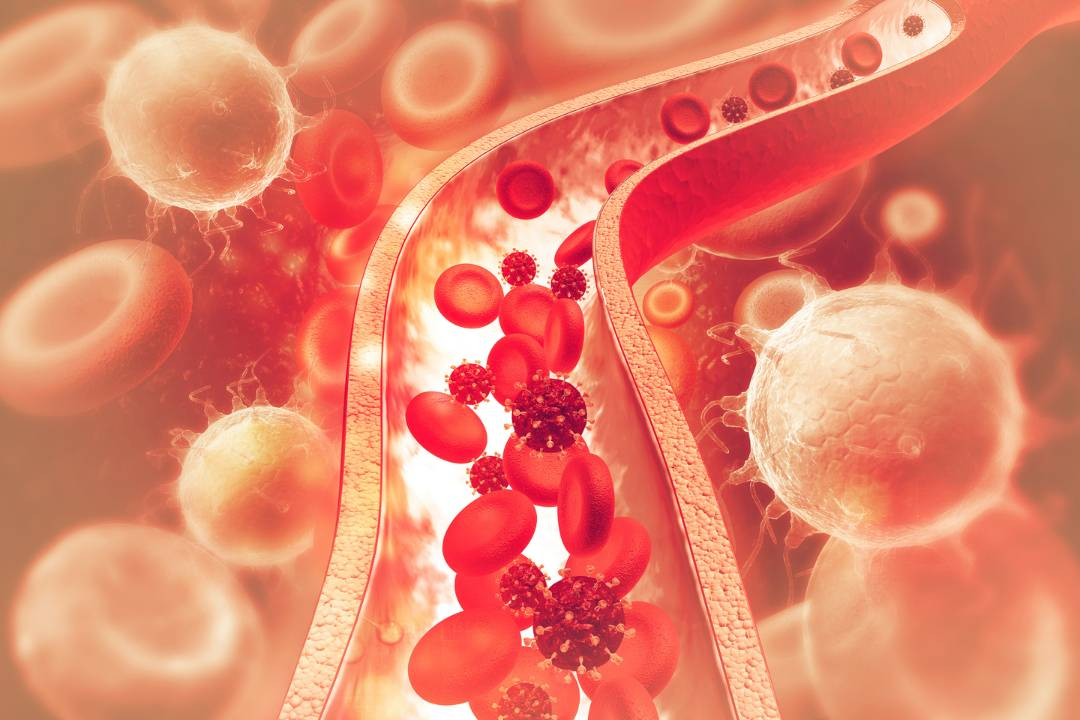
NAC (N-Acetyl Cysteine): The Versatile Health Dynamo
Share
Comprehensive Insight into NAC (N-Acetyl Cysteine): A Multifaceted Powerhouse
N-acetyl cysteine (NAC) has recently been in the limelight for diverse health benefits, from supporting the body's natural immune defences to its role in mental health conditions. It is the supplement form of the amino acid cysteine, a building block of proteins found naturally in our body and in some food sources. What makes NAC particularly remarkable is its ability to replenish our body's most potent antioxidant: glutathione. This property alone places NAC at the forefront of nutritional science, as it plays a pivotal role in neutralising harmful free radicals and mitigating oxidative stress, which has been implicated in numerous health conditions.
Moreover, NAC's potential doesn't stop at its antioxidant capabilities. Emerging research has examined its role in brain health, particularly in regulating glutamate levels, a critical neurotransmitter. This is a promising avenue for understanding some mental health conditions and how nutritional interventions can be supportive.
While the benefits of NAC may sound alluring, it's vital to dive deeper into scientific studies to understand its mechanisms, potential applications, and associated risks. Throughout this blog, we'll explore the fascinating world of NAC, backed by reputable scientific research.
N-acetyl cysteine (NAC) is not just another supplement on the market. It's a versatile amino acid derivative with profound implications for human health. This article delves deep into the myriad of health advantages attributed to NAC, offering a comprehensive understanding.

A Closer Look at NAC's Origin
N-acetyl cysteine, commonly abbreviated as NAC, has its roots in the biochemistry of life. It is derived from the amino acid cysteine, a sulfur-containing amino acid. Cysteine can be found in most high-protein foods and plays a vital role in many physiological processes. One of the unique aspects of oral n acetyl cysteine is its ability to form disulphide bonds, which are crucial in giving proteins their three-dimensional structure and stability.
NAC, an acetylated cysteine variant, was developed as a pharmaceutical agent long before its popularisation as a dietary supplement. Its first major clinical use was as a mucolytic agent - it can break down mucous, making it invaluable in chronic obstructive pulmonary disease (COPD) and cystic fibrosis.
Its origin as a therapeutic agent proves its safety and efficacy. Over the decades, as research expanded, scientists began to uncover the broader applications of NAC, especially its role in replenishing the body's stores of glutathione, one of the most potent antioxidants. This transition from a mucolytic agent to a potent antioxidant protector reveals NAC's versatility and potential in health and wellness.
The journey of NAC, from its biochemical roots to its contemporary applications in healthcare and nutrition, underscores the importance of continuous research. Only through a deeper understanding can we truly harness the potential of such compounds to improve human health.
NAC is the supplement version of cysteine, a conditionally essential amino acid. Its role in health sets it apart - from supporting powerful antioxidants to promoting brain nourishment. Our bodies can produce NAC from many other amino acid sources, especially when there's a dietary surge in methionine and serine.
Hint: High-protein foods, such as turkey, yogurt, eggs, and legumes, are prime sources of cysteine.

The Antioxidant Dynamo: Glutathione
Glutathione, often called the "master antioxidant," is paramount in the body's defence against oxidative stress and harmful compounds. Glutathione comprises three amino acids – cysteine, glutamate, and glycine – in virtually every body cell. It plays a critical role in safeguarding cellular integrity against the onslaught of free radicals.
Free radicals are unstable molecules generated as a byproduct of cellular metabolism and through exposure to toxins, radiation, and other external environmental factors. If left unchecked, these molecules can cause extensive damage to DNA, proteins, and cell membranes – a phenomenon known as oxidative stress. Oxidative stress is linked to many health issues, ranging from premature ageing to severe conditions like cardiovascular diseases, neurodegenerative diseases, and cancer.
This is where glutathione comes into play. By donating an electron, glutathione neutralises free radicals, rendering them harmless and protecting cellular components from damage. Furthermore, glutathione recycles other antioxidants, such as vitamins C and E, enhancing their effectiveness and longevity within the body.
Beyond its role as an antioxidant, glutathione is crucial in the detoxification process. The liver, the body's primary detoxification organ, houses high glutathione concentrations. Here, it binds to toxins, facilitating their excretion from the body.
Our body's glutathione levels tend to decline as we age, making supplementation and support increasingly important. N-acetyl cysteine (NAC), previously discussed, is a precursor to glutathione and plays an instrumental role in its replenishment. By ensuring optimal levels of this master antioxidant, individuals can potentially fortify their cellular defences, bolstering overall health and well-being.

NAC in Detoxification: A Lifesaver in Overdoses
N-acetylcysteine (NAC) is a remarkable molecule that, aside from its many health benefits, stands as a cornerstone treatment in medicine, particularly for acute overdose cases. It's no exaggeration to refer to NAC as a "lifesaver" in these scenarios, and understanding its role can shed light on the profound impact of this compound.
One of NAC's most notable applications is treating acetaminophen (paracetamol) overdose. While safe at therapeutic doses, Acetaminophen can be harmful when taken in excessive amounts. The drug undergoes metabolism in the liver, producing a toxic byproduct, NAPQI. The body's natural glutathione stores neutralize this toxic metabolite in regular doses. However, in overdose cases, glutathione reserves are quickly depleted, allowing NAPQI to accumulate and cause severe liver damage.
Enter NAC. As a precursor to glutathione, NAC works to replenish the body's depleted glutathione levels, thereby aiding in the detoxification of NAPQI. Administered either orally or intravenously, NAC has become the standard treatment for acetaminophen poisoning or overdose, with timely intervention crucial to prevent irreversible liver damage and enhance patient outcomes.
Beyond acetaminophen overdose, NAC has shown potential to mitigate liver toxicity from other substances, such as carbon tetrachloride, and heavy metals like lead and mercury. Its role as a detoxifying agent is rooted in its ability to enhance the body's intrinsic detoxification pathways, emphasising the versatility and importance of this compound.
In conclusion, N-acetylcysteine stands out as a contributor to overall health and a vital tool in emergency medicine. Its ability to restore the body's natural detoxification mechanisms underscores its significance and positions it as an indispensable resource in saving lives.

NAC and Mental Health: Beyond the Norm
N-acetylcysteine (NAC) is predominantly recognised for its role in detoxification and as an antioxidant. However, recent studies have begun exploring its potential impact on mental health, presenting intriguing findings that position NAC may be outside the conventional realm of its understood benefits.
One of the most profound areas of interest is NAC's potential in treating mood disorders, particularly depression and bipolar disorder. Preliminary research suggests that NAC might help alleviate symptoms of depression by modulating oxidative stress and inflammation, both of which have been implicated in the pathogenesis of mood disorders. Moreover, studies have shown that NAC can influence neurotransmitter systems, particularly glutamate, which plays a pivotal role in mood regulation.
Obsessive-compulsive disorder (OCD) and related conditions, such as bleeding disorders such as trichotillomania (hair-pulling disorder), have also shown promise in responding to NAC supplementation. In a randomised, double-blind trial, individuals with trichotillomania experienced significant reductions in hair-pulling behaviours when supplemented with NAC. This is believed to result from NAC's modulation of the glutamatergic system, which is increasingly recognised as having a role in compulsive behaviours.
Substance use disorders, especially cocaine and cannabis addiction, are another domain where NAC has demonstrated potential therapeutic benefits. By regulating the glutamate levels in the brain's reward regions, NAC may reduce cravings and the desire for drug-seeking behaviour, thus offering a promising adjunct treatment for addiction recovery.
The role of N-acetylcysteine in mental health is an emerging field of research with promising initial findings. From mood disorders to addictive behaviours, NAC's multifaceted influence on brain chemistry and function positions it as a potential therapeutic agent worth further research and exploration.
The brain’s primary neurotransmitter, glutamate, is regulated by NAC. A glutamate overload and a dip in glutathione levels can harm brain health. This imbalance is often implicated in mental health disorders such as bipolar disorder, schizophrenia, and substance use disorder. The good news? NAC showcases promise in assuaging these conditions by fine-tuning glutamate equilibrium.

Breathe Easy with NAC: A Respite for the Respiratory System
N-acetylcysteine (NAC) has carved a niche as a potential therapeutic agent, particularly in respiratory health. Its benefits are twofold: it acts as an antioxidant. Also, it functions as an expectorant, making it a valuable tool in alleviating symptoms for individuals with a range of respiratory conditions.
At its core, NAC is an antioxidant powerhouse. One of the primary antioxidants in the human body is glutathione, a tripeptide that plays an instrumental role in protecting the lungs from the ravages of oxidative stress. The lungs are particularly susceptible to oxidative damage by continuous exposure to the external environment and pollutants. NAC, when consumed, enhances the synthesis of glutathione in lung tissues, thus amplifying the lungs' intrinsic defence mechanism. This boost in glutathione can be particularly advantageous for patients with chronic obstructive pulmonary disease (COPD), a progressive lung disease that damages lung tissues and exacerbates oxidative stress.
But NAC's prowess doesn't stop with its antioxidant capabilities. As an expectorant, NAC assists in thinning and loosening mucus within the airways. This is especially beneficial for chronic bronchitis, where thick mucus production is a hallmark symptom. By promoting mucus clearance, NAC aids in improving airflow and reducing the frequency of coughing fits, enhancing overall respiratory comfort and may improve lung function itself.
Additionally, inflammation is a common denominator in many respiratory conditions. COPD, asthma, and other lung diseases often have an inflammatory component contributing to airway constriction and discomfort. With its antioxidant and anti-inflammatory and-inflammatory properties, NAC can help temper this inflammation, further promoting clearer airways and easier breathing.
N-acetylcysteine serves as a beacon of hope for many grappling with respiratory challenges. Whether bolstering the lungs' antioxidant defences, facilitating mucus clearance, or curbing inflammation, NAC's multifaceted contributions to respiratory health make it an invaluable ally for many.
It's crucial to emphasise that while NAC offers multiple benefits for respiratory health, it should not replace any existing treatments without the advice and guidance of a medical professional. Always consult with a healthcare provider when considering new or supplementary treatments for chronic liver disease.

Brain Health Fortified: NAC's Role in Neurological Equilibrium
The intricate tapestry of the human brain, with its myriad neural pathways and neurotransmitters, has long been a subject of deep intrigue for scientists. Central to the brain's optimal functionality are the neurotransmitter glutamate and the master antioxidant, glutathione. The relationship between these two compounds is pivotal in the context of various neurodegenerative disorders. N-acetylcysteine (NAC), with its multifaceted biochemical interactions, plays a significant role in maintaining this crucial balance, offering potential therapeutic benefits for conditions like Alzheimer's and Parkinson's.
Glutamate, one of the most prevalent neurotransmitters in the brain, plays a vital role in synaptic transmission, facilitating communication between neurons. However, an overabundance of glutamate can be detrimental, leading to a phenomenon known as excitotoxicity. This excitotoxicity can damage nerve cells and has been implicated in the pathogenesis of several neurodegenerative diseases, including Alzheimer's.
Enter glutathione, the body's primary antioxidant, whose principal function is to quell oxidative stress. In the brain, oxidative stress can result in neuronal damage, a common feature in diseases like Parkinson's. Glutathione, by counteracting the adverse effects of oxidative stress, ensures the health and longevity of neurons.
NAC's role in this intricate ballet of biochemical interactions is dual. Firstly, as a precursor to glutathione, NAC facilitates its synthesis, thereby bolstering the brain's antioxidant defences. Doing so potentially counters the neuronal damage associated with oxidative stress in conditions like Parkinson's. Secondly, evidence suggests that NAC can modulate glutamate levels, thus potentially protecting neurons from glutamate-induced excitotoxicity. This modulation could be particularly relevant in Alzheimer's disease, where excitotoxicity is believed to play a part in its progression.
The delicate balance between glutamate and glutathione in the brain is vital for maintaining neurological health. By influencing this balance, N-acetylcysteine is a promising agent against neurodegenerative disorders. While research is ongoing, the prospects of NAC in fortifying brain health are undoubtedly exciting.

A Beacon for Fertility: NAC's Promising Role in Reproductive Health
In a world where advancements in medicine and healthcare have made many once-debilitating conditions manageable, infertility remains a poignant challenge, carrying with it not just physical hurdles but profound emotional and psychological impacts. Infertility often engenders feelings of incompleteness, frustration, and, at times, profound sorrow for couples who aspire to conceive. While the reasons for infertility can be manifold, recent research has highlighted the influence of oxidative stress, especially in male infertility. Enter N-acetylcysteine (NAC), a versatile antioxidant steadily emerging as a beacon of hope in this challenging landscape.
Oxidative stress arises from an imbalance between free radicals (oxidants) and the body's ability to counteract their harmful effects with antioxidants. In the realm of male reproductive health, oxidative stress has been found to adversely affect the integrity of sperm DNA, sperm motility, and overall sperm health. The subsequent impairment in sperm functionality is believed to be a significant factor in male infertility. NAC, known for its robust antioxidant properties, has shown promise in mitigating the damage caused by oxidative stress. Preliminary studies suggest that NAC supplementation can enhance sperm quality, improve motility, and even augment the overall antioxidant status in seminal plasma, providing an optimistic prospect for men grappling with infertility linked to oxidative stress.
The implications of NAC aren't restricted to male fertility alone. Women, particularly those diagnosed with Polycystic Ovary Syndrome (PCOS), also stand to benefit from this multifaceted compound potentially. PCOS, a common endocrine disorder among women of reproductive age, frequently presents with ovulatory dysfunction, leading to infertility. The pathology of PCOS is intricate, but oxidative stress again figures prominently among its underlying mechanisms. NAC's antioxidant action seems to play a constructive role in improving menstrual regularity and ovulation rates in women with PCOS, possibly augmenting their chances of conception.
Furthermore, NAC's ability to modulate insulin sensitivity adds another layer to its therapeutic potential for women with PCOS, many of whom face insulin resistance as a concurrent challenge. By ameliorating insulin resistance, NAC may support fertility and counter other PCOS-associated symptoms.
The spotlight on compounds like NAC becomes more intense as the world grapples with rising infertility rates. Its potential roles in male and female reproductive health paint a picture of optimism in a field fraught with challenges. However, as with all medical interventions, a comprehensive discussion with healthcare professionals and further robust research are imperative before heralding NAC as a panacea for fertility challenges.

NAC in Blood Sugar Management: A Potential Game-Changer in Diabetic Care
The intricacies of the human body's metabolic machinery have been a subject of scientific curiosity and investigation for many years. Central to this machinery is the meticulous regulation of blood sugar or glucose, a primary energy source for our body's cells. In ideal conditions, our body efficiently utilises glucose, but disorders like diabetes throw a wrench into this fine-tuned system, leading to unchecked high blood pressure and sugar levels. Obesity, closely interwoven with type 2 diabetes, further compounds the problem by fostering inflammation in adipose tissue. This inflammation has sinister implications, as it can potentially compromise insulin receptors, impairing the body's ability to utilise glucose effectively. But amidst these challenges, N-acetylcysteine (NAC) is emerging as a beacon of hope, promising to modulate blood sugar by targeting this inflammation.
To understand the implications of unchecked blood sugar levels, one must first grasp the pivotal role of insulin. Insulin, a hormone the pancreas produces, is central to glucose metabolism. It facilitates glucose uptake into cells, ensuring that the sugar levels in the bloodstream are maintained within a narrow and safe range. Inflammation, particularly when spurred by obesity, can harm this process. Chronic inflammation in adipose (fat) tissue interferes with the functionality of insulin receptors, rendering them less responsive to insulin, a condition termed insulin resistance. This resistance means that even when insulin is present in adequate or elevated amounts, it cannot effectively exert its glucose-lowering effects, leading to elevated blood sugar levels, a hallmark of type 2 diabetes.
Enter NAC. Preclinical studies, particularly in animals, have provided compelling insights into the potential benefits of NAC in blood sugar management. These studies hint at NAC's ability to curb inflammation, particularly in adipose tissue. Doing so can potentially revitalise the compromised insulin receptors, allowing them to respond more effectively to insulin and facilitate glucose uptake. This, in turn, would lead to a reduction in blood sugar levels. Moreover, NAC's inherent antioxidant properties might also play a role in counteracting the oxidative stress commonly associated with diabetes, providing a dual mechanism of action.
The prospect of utilising NAC in blood sugar management is undoubtedly exciting, especially against a global diabetes epidemic. Its potential to modulate inflammation and improve insulin sensitivity can offer a complementary strategy alongside existing treatments. However, it's crucial to note that while animal studies provide valuable insights, NAC's exact mechanisms and benefits in humans, especially in the context of diabetes, need further robust investigation.
For those considering NAC as part of their blood sugar management strategy, it's always vital to consult healthcare professionals to understand its potential benefits and risks in individual cases.

Heart Health & NAC: A Strong Alliance - An In-depth Exploration into Cardiovascular Well-being
In the intricate dance of life, the heart takes centre stage, tirelessly pumping blood and ensuring every cell gets its share of oxygen and nutrients. Yet, despite its vital role, the heart is not invincible. It can be vulnerable to myriad ailments, namely heart and cardiovascular disease itself, many of which stem from oxidative tissue damage. The heart is exposed to a relentless barrage of oxidative stressors in its ceaseless operation. These can damage cellular structures, interfere with the delicate balance of lipids in our blood, and lay the foundation for heart diseases. However, hope emerges in the form of N-acetylcysteine (NAC), a compound that seems tailor-made to combat these oxidative challenges and bolster heart health.
Like any other organ, the heart operates in a biochemically rich environment. This milieu contains reactive oxygen species (ROS), which, while essential in small quantities for specific cellular processes, can become a bane in excess. Excessive ROS can inflict oxidative damage on cellular structures, from lipids to DNA. Such damage can undermine cells' structural integrity and functionality in the heart and blood vessels. For instance, the oxidation of low-density lipoproteins (LDL) is critical in forming atherosclerotic plaques, which can narrow and harden arteries, setting the stage for heart attacks and strokes.
NAC enters the scene as a formidable ally in this battle against oxidative damage. This molecule is a precursor to glutathione, one of the body's primary antioxidants. As such, NAC can bolster the body's glutathione reserves when consumed, enhancing its capacity to neutralise ROS. By reducing oxidative stress and minimising the oxidative onslaught on heart tissues and blood vessels, NAC plays a pivotal role in diminishing the risks associated with heart diseases. Moreover, its antioxidant properties may also prevent the oxidation of LDL cholesterol, directly inhibiting the cascade of events leading to atherosclerosis.
But the benefits of NAC aren't restricted to its antioxidant capabilities alone. Research has also indicated that NAC might have a beneficial impact on blood pressure and endothelial function. The endothelium, the inner lining of our blood vessels, plays a crucial role in vascular health. The proper endothelial function ensures that blood vessels can expand and contract as needed, maintaining optimal blood flow. NAC's potential to support this function further cements its place as a valuable ally for heart health.
NAC offers a multi-pronged approach to cardiovascular health. Still, as always, individuals must discuss with healthcare professionals before incorporating NAC or any other supplement into their health regimen.

Immune Health Amplified with NAC: The Synergy of NAC and Glutathione in Bolstering Our Body's Defense Mechanisms
The immune system is a complex network of cells, tissues, and biochemical pathways that serves as the body's primary defence against many external threats, be it bacteria, viruses, or toxins. Maintaining a well-functioning and responsive immune system ensures our health and vitality. As such, the role of N-acetylcysteine (NAC) and glutathione, its counterpart in immune health, comes to the fore, offering a fascinating insight into the biochemical underpinnings of our body's defences.
NAC, as a precursor to glutathione, carries immense significance in immunology. Glutathione, often called the "master antioxidant," is pivotal in neutralising harmful reactive oxygen species (ROS) and other free radicals in the body. While these ROS are a natural byproduct of our body's metabolic processes, an overabundance can be detrimental, leading to oxidative stress, which can compromise cell integrity and function, including those of our immune cells.
The synergy of NAC and glutathione becomes evident when we delve into the specifics of immune responses. For instance, immune cells such as macrophages and neutrophils are activated during an immune response to an infection and produce ROS as part of their defence mechanism to neutralise pathogens. While this is beneficial in combating infections, it's also crucial to ensure that these ROS don't damage our body's cells. Enter glutathione acts as a safeguard, neutralising excess ROS and ensuring our immune response remains effective without becoming self-destructive.
Recent research has posited an intriguing notion: that deficits in glutathione levels can impair immune function, leaving the body vulnerable. Factors such as ageing, environmental pollutants, and certain medical conditions can deplete our body's glutathione reserves, thus compromising immune functionality. NAC supplementation emerges as a beacon of hope in this context. NAC supplementation can effectively bolster glutathione levels, potentially rejuvenating and amplifying immune function by serving as a direct precursor to glutathione.
Furthermore, NAC's immunomodulatory properties extend beyond its role in glutathione synthesis. Studies have indicated that NAC can modulate the production of specific cytokines, proteins vital for cell signalling during immune responses. This implies that NAC doesn't just play a passive role as a building block but actively influences the dynamics of our immune responses.
NAC and glutathione ensure our immune system's vitality and responsiveness. Their interplay, especially under the influence of NAC supplementation, holds promise for fortifying our defences against various external challenges. As always, anyone considering NAC supplementation should seek guidance from healthcare professionals to fully understand its potential benefits and implications.

Dosage & Considerations: NAC Supplementation
N-acetylcysteine, commonly called NAC, has garnered significant attention recently for its potential therapeutic benefits. From bolstering antioxidant defences to mitigating the effects of chronic illnesses, the promises of NAC are manifold. However, like any substance we introduce into our bodies, understanding its dosage and considering specific factors is paramount to harness its full benefits and ensuring safety.
The concept of bioavailability is pivotal when discussing the oral administration of NAC itself. Bioavailability refers to the proportion of a substance that enters the bloodstream when introduced into the body and becomes available for use or storage. NAC's oral bioavailability is relatively low, meaning that only a small percentage of the consumed dose gets absorbed into our system when taken by mouth. This reduced absorption rate is partly due to the digestive process, where various enzymes and stomach acids may break down a fraction of the ingested NAC before it reaches systemic circulation.
Given this low bioavailability, dosages of NAC often need to be higher to ensure that an adequate amount reaches the target areas. While the optimal dosage can vary depending on individual needs and the specific condition being targeted, typical daily dosages for oral supplementation tend to fall between 600–1,800 mg. For instance, some individuals aiming for general antioxidant support might find efficacy at the lower end of this range. In comparison, those seeking therapeutic effects for specific ailments might require dosages toward the higher end.
However, it's imperative to underscore a pivotal point: while guidelines provide a general framework, individual needs can vary widely. Factors such as body weight, metabolism, overall health, concurrent medications, and specific health concerns can all influence the ideal dosage for a given individual. This variability underscores the importance of seeking a consultation with a medical professional before embarking on any supplementation regime. Healthcare providers possess the expertise to assess individual circumstances, recommend appropriate dosages, and monitor for potential side effects or interactions with other medications.
Moreover, while NAC is generally well-tolerated, like any supplement, it may have potential side effects. Common side effects may include gastrointestinal symptoms like nausea or diarrhoea, especially when taken on an empty stomach. By working closely with a healthcare professional, individuals can ensure they're taking an appropriate dosage and addressing and managing any potential side effects adverse reactions or concerns that may arise during supplementation.
NAC's potential benefits make it a compelling option for many individuals. However, understanding its dosage intricacies, considering individual variables, and, most importantly, seeking guidance from qualified professionals ensure that one navigates the path of supplementation with safety and efficacy in mind.

Navigating the Nuances of NAC: The Benefits and Words of Caution
N-acetylcysteine, commonly known as NAC, has solidified its position in the wellness sphere as a supplement of significance. Its role transcends that of a mere supplemental aid; instead, it functions as a potent powerhouse, offering a spectrum of health benefits that address the body's myriad needs. With its renowned ability to rejuvenate the antioxidant glutathione, regulate pivotal neurotransmitters, and reinforce vital detoxification pathways, NAC has gained a reputation as a versatile and vital health adjunct.
However, as with any potent substance, understanding and respecting its complexities is crucial. Even as its merits continue to be celebrated, it's equally important to shed light on the potential caveats associated with NAC consumption. Large doses, for instance, have been observed to trigger gastrointestinal disturbances in some individuals. This might manifest as stomach upset, nausea, or even diarrhoea, especially when the supplement is consumed on an empty stomach. Additionally, while not common in oral supplementation, inhalation or mist forms of NAC, typically used in medical settings, can occasionally lead to mouth or throat irritations.
These potential side effects underscore the inherent need for caution and the importance of informed consumption. It is paramount that anyone considering NAC as a supplement seeks the guidance of a medical professional. A physician's perspective is not just recommended; it's invaluable. Their expertise provides an accurate assessment of dosage, potential interactions with other medications, and a tailored approach based on individual health needs and conditions.
In conclusion, as we navigate health, dietary supplements, and interventions, we must approach them with a balanced perspective. NAC, while possessing remarkable potential, requires respect in its consumption. It’s not just about recognising its profound benefits but also about understanding its nuances and seeking the right guidance to maximise its advantages while ensuring safety. In the intricate dance of health and wellness, NAC emerges as a promising partner, but like all partnerships, it thrives best with understanding and care.

The Good Stuff: South Africa's Premier Online Health Store
Diving into health and wellness often means navigating a maze of products, ingredients, and brands. For South Africans, The Good Stuff emerges as a trusted lighthouse amidst this bustling market. As the nation's favourite online health shop, it promises quality products and a curated experience prioritising health, transparency, and customer satisfaction.
Among The Good Stuff's myriad offerings to its audience, a particular segment has garnered significant attention late: N-acetylcysteine, or NAC, supplements. Recognising the myriad benefits of NAC supplements, The Good Stuff ensures it hosts a range of brands that cater to varying preferences and needs. Here's a deeper dive into the NAC products that have won the hearts of many:
SOLGAR NAC 600mg
SOLGAR is renowned for its commitment to quality and purity. Their NAC 600mg is no exception. Each capsule is meticulously designed to deliver 600mg of high-quality N-acetylcysteine. Encased in a vegetable capsule, this supplement is free from gluten, wheat, and dairy, making it ideal for those with dietary restrictions. Perfect for those seeking a robust daily dose of NAC, SOLGAR ensures consistent potency with every batch.
WILLOW NAC (N-Acetyl L-Cysteine)
Embracing a holistic approach, WILLOW's NAC variant stands out for its clean and minimalist formula. Prioritising natural ingredients, this supplement lacks any artificial additives or fillers. It is formulated to support overall health, particularly targeting antioxidant support and liver health. WILLOW is a brand of choice for those championing transparency and natural wellness.
YOUR WELLBEING N-Acetyl-Cysteine
As the name suggests, YOUR WELLBEING places the customer's health at the forefront. Their N-Acetyl-Cysteine supplement has been crafted carefully, ensuring a balanced and effective dose suitable for daily consumption. This brand bridges the gap between health needs and tangible solutions with rigorous quality checks and a commitment to holistic well-being.
METAGENICS NURTURE Liver Support
Tailored for those seeking liver support, METAGENICS NURTURE goes beyond providing NAC. This supplement is a blend of potent ingredients, with N-acetylcysteine playing a pivotal role. It synergises with other components to offer comprehensive liver health support, detoxification, and overall well-being. METAGENICS NURTURE is a stellar choice for those requiring a more targeted approach to liver health.
MEDFORD GlucoScript
MEDFORD's GlucoScript takes a unique route, combining the benefits of NAC with a focus on blood sugar management. Recognising the role of oxidative stress in blood sugar fluctuations, this supplement utilises NAC's powerful antioxidant properties to offer a two-pronged benefit. With a commitment to metabolic health and well-being, GlucoScript is for those who seek a specialised approach to blood sugar management with the added benefits of NAC.
The Good Stuff stands tall in the ever-evolving health and wellness landscape, offering South Africans a trusted platform to access some of the best NAC supplements and beyond. Consultation with a healthcare professional is advised before starting any supplementation.
The Good Stuff: Dive into Our Team's Expertise
In the thriving world of health and wellness, the essence of The Good Stuff is reflected through its dedicated team. This cadre of health enthusiasts, each with their unique expertise, is genuinely invested in every step of your health journey. Their unwavering commitment to knowledge and holistic well-being ensures you have an arsenal of experts guiding you, celebrating both your small strides and significant victories. Every time a product or advice from The Good Stuff resonates with you, whether finding a skin-care product that finally works or picking a delightful candle, know that our team shares in your joy.
Noelene Kennedy: The Vibrant Captain
Also known affectionately as “Mamma Boss” by her staff, Noelene is the spirited proprietor of The Good Stuff. Her journey began as a Reflexologist and employee at the store before she became its proud owner. With a heart firmly planted in all facets of health, particularly women’s health, Noelene emphasises the pivotal role of hormones in our well-being. Her relentless pursuit of knowledge in this domain, backed by 25 years in the health sector, ensures that she remains a beacon of advice and comfort for issues ranging from skincare to menopause.
Michèle de Brabander: Guiding Light of The Good Stuff
Beginning her journey as a health consultant, Michèle's kindness, welcoming demeanour, and vast expertise made her transition into our esteemed manager seamless. With two decades in the health industry and recognition as a Therapeutic Reflexologist from the AHPCSA, her credentials are impeccable. But her continuous thirst for knowledge, her diploma in Horticulture, her certification in Herbalism, and her clinical studies in Homeopathy set her apart. Drawing from her experiences with mental health challenges, she lends a compassionate ear to everyone she serves.
Deevya Vasson: The Holistic Maven
Hailing from a background of penning health and beauty narratives for esteemed women's magazines, Deevya's journey into the holistic health realm was fueled by personal curiosity. As a certified Hatha Yoga Practitioner and Pre/Post Natal Yoga facilitator with 15 years of teaching experience, she infuses ancient wisdom into modern lives through her classes at Yoga with Deevya. Her mission at the store aligns with her personal mantra: every small step towards improved health counts.
Marlene McPherson: The Natural Healing Aficionado
With a prosperous 25-year career as a Natural Health Practitioner, Marlene epitomises holistic wellness. She operates her health practice, leveraging her diverse training in nutrition, herbs, and movement therapy. For Marlene, every health challenge has deeper physical, emotional, or spiritual roots. Her mission is to unearth these underlying causes, guiding her clients towards a balanced life. Drawing from her personal health experiences, she's fervently committed to sharing her wisdom.
A Glimpse of Our Offering
Our Cavendish Store boasts an extensive range of products, from supplements like Cellfood, PrimeQuest, and Vitamin Research Products to household necessities like Earthsap and Enchantrix. Dive into our skincare section with gems like Dr. Organic, Badger Organic Skincare, and Organic Rosehip Oil. Explore our aromatic world with products from Thursday Plantation and Aromatic Apothecary, or delve into our diverse food section with offerings from Health Connection, Kimono Organic Tamari, and Nielson Massey Vanilla Essence. We aim to offer you the finest natural and holistic care with each product.

Sources
Raut, A. A., Rege, N. N., Tadvi, F. M., Solanki, P. V., Kene, K. R., Shirolkar, S. G., Pandey, S. N., Vaidya, R. A., & Vaidya, A. B. (2012). Exploratory study to evaluate tolerability, safety, and activity of Ashwagandha (Withania somnifera) in healthy volunteers. Journal of Ayurveda and Integrative Medicine, 3(3), 111-114. https://doi.org/10.4103/0975-9476.100168
Shahripour, R. B., Harrigan, M. R., & Alexandrov, A. V. (2014). N-acetylcysteine (NAC) in neurological disorders: Mechanisms of action and therapeutic opportunities. Brain and Behavior, 4(2), 108-122. https://doi.org/10.1002/brb3.208
Ayyar, B. V., Tajhya, R. B., Beeton, C., & Atassi, M. Z. (2015). Antigenic sites on the HN domain of botulinum neurotoxin A stimulate protective antibody responses against active toxin. Scientific Reports, 5. https://doi.org/10.1038/srep15776
Poelen EA, Engels RC, Van Der Vorst H, Scholte RH, Vermulst AA. Best friends and alcohol consumption in adolescence: a within-family analysis. Drug Alcohol Depend. 2007 May 11;88(2-3):163-73. doi: 10.1016/j.drugalcdep.2006.10.008. Epub 2006 Nov 28. PMID: 17127016.
Shahripour, R. B., Harrigan, M. R., & Alexandrov, A. V. (2014). N-acetylcysteine (NAC) in neurological disorders: Mechanisms of action and therapeutic opportunities. Brain and Behavior, 4(2), 108-122. https://doi.org/10.1002/brb3.208
Raut, A. A., Rege, N. N., Tadvi, F. M., Solanki, P. V., Kene, K. R., Shirolkar, S. G., Pandey, S. N., Vaidya, R. A., & Vaidya, A. B. (2012). Exploratory study to evaluate tolerability, safety, and activity of Ashwagandha (Withania somnifera) in healthy volunteers. Journal of Ayurveda and Integrative Medicine, 3(3), 111-114. https://doi.org/10.4103/0975-9476.100168
Pizzorno, J. (2014). Glutathione! Integrative Medicine: A Clinician's Journal, 13(1), 8-12. https://www.ncbi.nlm.nih.gov/pmc/articles/PMC4684116/
Nicolle, L. (2006). Beyond Antibiotics? The Canadian Journal of Infectious Diseases & Medical Microbiology, 17(5), 265-266. https://doi.org/10.1155/2006/435962
Gwede, C. K., Ashley, A. A., McGinnis, K., Montiel-Ishino, F. A., Standifer, M., Baldwin, J., Williams, C., Sneed, K. B., Wathington, D., Dash-Pitts, L., & Green, B. L. (2013). Designing a Community-Based Lay Health Advisor Training Curriculum to Address Cancer Health Disparities. Health Promotion Practice, 14(3), 415. https://doi.org/10.1177/1524839912458675
Puchberger-Enengl, D., Podszun, S., Heinz, H., Hermann, C., Vulto, P., & Urban, G. A. (2011). Microfluidic concentration of bacteria by on-chip electrophoresis. Biomicrofluidics, 5(4), 044111. https://doi.org/10.1063/1.3664691
Ginsberg, L. D., Oubre, A. Y., & DaouD, Y. A. L-methylfolate Plus SSRI or SNRI from Treatment Initiation Compared to SSRI or SNRI Monotherapy in a Major Depressive Episode. Innovations in Clinical Neuroscience, 8(1), 19-28. https://www.ncbi.nlm.nih.gov/pmc/articles/PMC3036555/
Nicolle, L. (2006). Beyond Antibiotics? The Canadian Journal of Infectious Diseases & Medical Microbiology, 17(5), 265-266. https://doi.org/10.1155/2006/435962
Li, Y., Akkus, C., Yu, X., Joyner, A., Kmet, J., Sweat, D., & Jia, C. (2019). Heatwave Events and Mortality Outcomes in Memphis, Tennessee: Testing Effect Modification by Socioeconomic Status and Urbanicity. International Journal of Environmental Research and Public Health, 16(22). https://doi.org/10.3390/ijerph16224568
